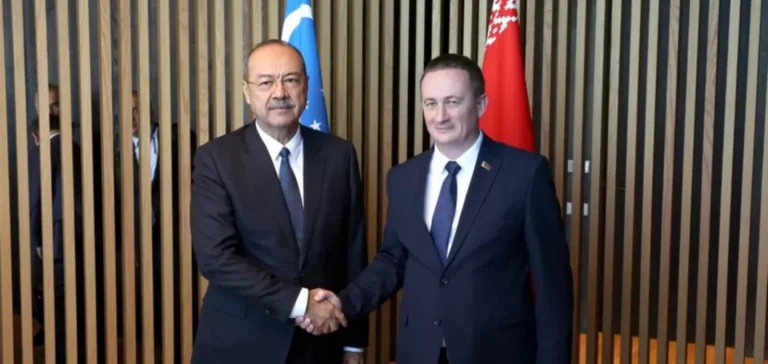The Minister of Energy of the Republic of Belarus, Denis Moroz, announced that his country is ready to participate in the project to build Uzbekistan’s first nuclear power plant, pending an agreement with the authorities in Tashkent. The statement followed a meeting between Denis Moroz and a delegation from the Agency for Atomic Energy of Uzbekistan (Uzatom), led by its director Azim Akhmedkhadjaev.
Strengthening the energy dialogue between the two countries
The discussions focused on cooperation in the development of nuclear infrastructure, staff training, management of radioactive waste, and the integration of a nuclear power plant into Uzbekistan’s national energy system. Denis Moroz specified that Belarus remains open to collaboration on this project, emphasising the willingness to share its experience gained in the construction and operation of the Belarusian nuclear power plant. He added that the country could provide valuable expertise, ranging from engineering to fuel cycle management.
Technical visit and cooperation prospects
The Uzbek delegation, on an official visit to Belarus, will also visit the site of the Belarusian nuclear power plant. Experts from both countries are tasked with identifying areas of cooperation, particularly on the technical and organisational aspects of the future project. According to Denis Moroz, the commissioning of the Belarusian plant has not only ensured the country’s energy independence but also stimulated growth in several associated industrial sectors.
Uzatom director Azim Akhmedkhadjaev highlighted the importance of integrating Belarusian feedback into the design and management of the future Uzbek site. He noted the relevance of the technical solutions implemented in Minsk, considering they could be adapted to the Uzbek context.
A structuring nuclear project for Uzbekistan
The contract signed in Tashkent on May 27, 2024, provides for the construction of a nuclear power plant comprising six reactors of 55 megawatts each in the Jizzakh region. The project’s implementation is entrusted to Atomstroyexport JSC, the engineering division of Rosatom, with the participation of local companies. According to the Russian Ministry of Economic Development, the project was recently redirected toward a mixed scheme, combining a large-capacity two-unit plant and a small-capacity two-unit plant.
The rapid development of Uzbekistan’s nuclear programme comes in a context of energy diversification and openness to international partnerships. The technical rapprochement between Belarus and Uzbekistan could strengthen energy security and facilitate the transfer of skills to local players.
Azim Akhmedkhadjaev underlined the opportunity that this cooperation represents for Uzbekistan: “We see strong potential for developing synergies and involving our Belarusian colleagues in our project.”






















